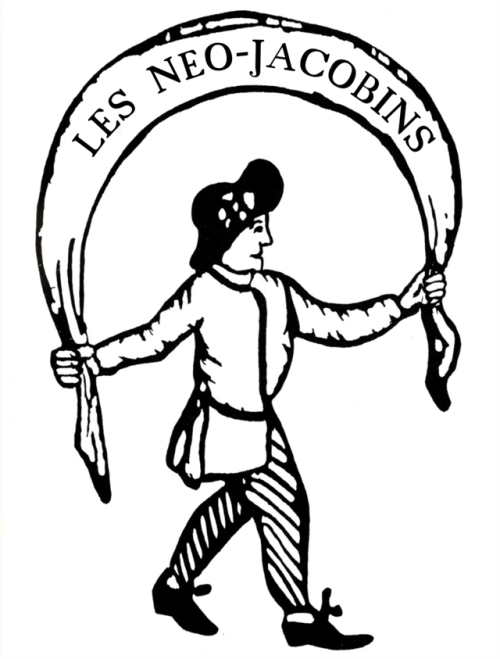#jacobin club
The Neo-Jacobins (R. Monnier)
After the defeat of the Jacobins, a leftist republican current persisted in the provinces, whose manifestations and intensity varied according to the local power relations and the decree of tolerance shown by the authorities and the government. In the form of a simple struggle for survival, as after the repressions of Prairial Year III and Floréal Year IV, or of the resurgence of a political practice and reaffirmation of an ideology, as in Year IV and Year VII, the permanence of this current until the Consulate demonstrates its vitality. In the regions where royalist agitation was endemic, the republican defence strategy favoured the local Jacobins. Thus, in Toulouse, where they remained in the municipality, they were able to animate the resistance to the Counter-Revolution and to organise the defence of the city which repelled the royalist insurrection in Thermidor, Year VII. The policy of union of the republicans, practices by the Directory in order to face the royalist peril, allowed the Jacobins to reorganise. As under the Revolution, their action concentrated in the clubs. Some of them were recreated in the beginning of Year IV ; the one of the Panthéon is the most famous. After 18 Fructidor the cercles constitutionnels multiplied in the provinces, and in Year VII the Jacobins found themselves at the Manège, which appeared like a resurrection of the club of Year II. While developing the clubs and animating civic festivals, the neo-Jacobins engaged in an intense propaganda in the press and in a campaign of petitions to the Directory and to the Councils. Their action measured up to the successes that were won in the elections of Year VI, in spite of the campaign of the government. The influence of the left intensified in Year VII ; the Jacobins, once more in power after 30 Prairial, secured solid positions in the administration and resumed the offensive on the legislative plan. The military difficulties allowed the Jacobin minority to induce the Councils to vote measures of public safety, the Jourdan Law, the emprunt forcé and the Law of Hostages (10-24 Messidor). This second terror disappeared with the danger for the patrie.
The programme of the neo-Jacobins was limited. Every attempt of radicalisation, every widening of the movement in the direction of the sans-culottes brought about the reaction. For the Jacobins, the price of rallying was the sacrifice of their own political and social objectives. Having abandoned the Constitution of 1793 as subversive, they had to accommodate themselves to the one of Year III, hoping to inflect the institutions in a more democratic sense. Their demands mainly focused on the guarantee of the public liberties and, in the social realm, on a fairer distribution of taxes, the distribution of land to the defenders of the patrie, and a primary education for everyone. No radical criticism of the system, as with Babeuf. Would the defence of the Republic lead them to relying on the people? The Jacobin momentum alarmed the government, which insured itself against the « red peril ». Bonaparte was able to make use of this in order to liquidate the Jacobin opposition after the assassination attempt of 3 Nivôse Year IX, and to rally the bourgeoisie to his personal policy.
Source:Dictionnaire historique de la Révolution française (Albert Soboul)
Post link

